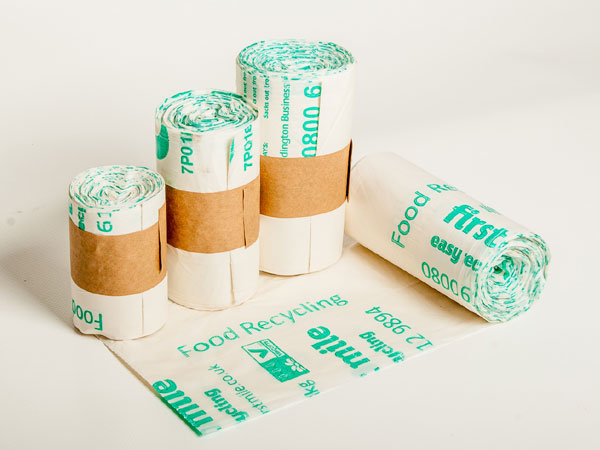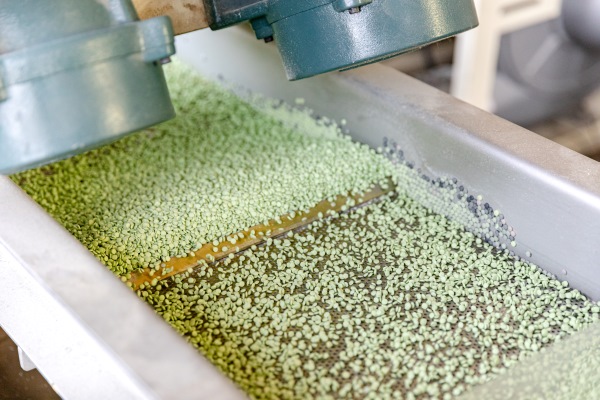
Compostable polythene bags are a type of biodegradable plastic made from renewable resources such as cornstarch, sugarcane, or other plant-based materials. Unlike traditional plastic bags, compostable polythene bags can break down into natural elements like water, carbon dioxide, and biomass when exposed to specific environmental conditions. This process occurs without leaving behind harmful microplastics or toxic residues, making them an eco-friendly alternative to conventional plastic bags.
Environmental sustainability is crucial for preserving our planet’s resources and ensuring a healthy future for generations to come. It involves reducing our ecological footprint by minimising waste, conserving energy, and promoting the use of renewable resources. By focusing on the eco-friendly benefits and waste reduction potential of compostable polythene bags, this article aims to highlight their significance in achieving environmental sustainability across various industries.
Eco-friendly benefits of compostable polythene bags
Biodegradability and compostability
Biodegradability and compostability are key advantages of compostable polythene bags. These bags are designed to break down naturally over time, which helps reduce the amount of plastic waste that ends up in landfills and oceans. This natural decomposition process also means that compostable polythene bags won’t leave behind toxic residues or microplastics that can harm the environment. Instead, they contribute to nutrient-rich compost that can be used to improve soil health and support plant growth. By choosing compostable bags, individuals and businesses can play an important role in reducing plastic pollution and promoting a more sustainable future.
Reduced carbon footprint
 Compostable polythene bags offer a more environmentally friendly alternative to traditional plastic bags by reducing carbon emissions. The production of these bags results in lower greenhouse gas emissions compared to the manufacturing of conventional plastic bags. This is because compostable polythene is often made from renewable resources, such as plant-based materials, which have a lower carbon footprint. In addition, the manufacturing process for compostable bags is more energy-efficient, further reducing the environmental impact. By choosing compostable polythene bags, we can help mitigate climate change.
Compostable polythene bags offer a more environmentally friendly alternative to traditional plastic bags by reducing carbon emissions. The production of these bags results in lower greenhouse gas emissions compared to the manufacturing of conventional plastic bags. This is because compostable polythene is often made from renewable resources, such as plant-based materials, which have a lower carbon footprint. In addition, the manufacturing process for compostable bags is more energy-efficient, further reducing the environmental impact. By choosing compostable polythene bags, we can help mitigate climate change.
Non-toxic and safe for the environment
The eco-friendly benefits of compostable polythene bags extend beyond their biodegradability. These bags are designed to be non-toxic and safe for the environment, meaning they won’t release harmful chemicals during decomposition. This makes them suitable for use in organic farming and gardening practices, where maintaining soil health and avoiding chemical contamination are crucial. Compostable polythene bags are also beneficial for waste management systems, as they can be safely composted along with organic waste, reducing the need for separate disposal methods.
Reducing waste and promoting sustainability in various industries
Food industry
In the food industry, compostable polythene bags play a crucial role in reducing waste and promoting sustainability. These bags are ideal for food packaging and storage, as they help extend the shelf life of perishable items while also being biodegradable and compostable. By adopting compostable bags, food manufacturers and retailers can reduce their environmental impact and contribute to a more circular economy. Additionally, using compostable bags for food waste collection can divert organic waste from landfills, allowing it to be transformed into valuable compost that improves soil fertility and promotes sustainable farming practices.
Retail and e-commerce
Retail and e-commerce businesses can also embrace sustainability by offering compostable shopping bags and packaging materials to their customers. These bags provide an eco-friendly alternative to traditional plastic bags, reducing the amount of plastic waste generated from retail activities. Encouraging customers to bring their own reusable bags or providing compostable options helps foster a culture of environmental responsibility. Retailers can also utilise compostable packaging for shipping and delivering goods, further minimising their carbon footprint, and demonstrating a commitment to sustainable practices throughout their supply chain.
Agriculture and horticulture
Compostable polythene bags are valuable tools for waste reduction and sustainability in the agriculture and horticulture industries. These bags can be used for soil amendment and mulching, improving soil health and moisture retention while also suppressing weeds. By choosing compostable bags, farmers and gardeners can support organic farming methods that prioritise ecological balance and avoid the use of synthetic chemicals. Additionally, compostable bags can be employed for collecting and composting garden waste, closing the loop on organic matter, and enhancing the sustainability of landscaping and horticultural practices.
Challenges and overcoming them
 One of the main challenges in promoting the use of compostable polythene bags is ensuring their cost-effectiveness and scalability. These bags often carry a higher upfront cost compared to traditional plastic bags, which can deter consumers and businesses from adopting them. To address this challenge, it is important to highlight the long-term environmental and economic benefits of compostable bags, such as reduced waste management costs and a lower environmental impact. Additionally, advancements in technology and increasing demand can drive down production costs, making compostable bags more affordable and accessible.
One of the main challenges in promoting the use of compostable polythene bags is ensuring their cost-effectiveness and scalability. These bags often carry a higher upfront cost compared to traditional plastic bags, which can deter consumers and businesses from adopting them. To address this challenge, it is important to highlight the long-term environmental and economic benefits of compostable bags, such as reduced waste management costs and a lower environmental impact. Additionally, advancements in technology and increasing demand can drive down production costs, making compostable bags more affordable and accessible.
Awareness and adoption by consumers and businesses are crucial for the success of compostable polythene bags. Educating people about the environmental benefits of compostable bags and how they differ from traditional plastics is essential. Marketing and promotional campaigns can play a vital role in raising awareness and encouraging the adoption of compostable alternatives. Demonstrating the performance, durability, and convenience of compostable bags can also address any concerns or misconceptions that may hinder their acceptance.
Compostable polythene bags offer a wealth of benefits that contribute to a greener and more sustainable future. By adopting these bags, we can significantly reduce plastic waste, lower our carbon footprint, and promote eco-friendly practices. They provide an environmentally conscious alternative to traditional plastic bags, breaking down naturally and returning to the earth without causing harm. Individuals and businesses play a pivotal role in driving change. By choosing compostable options and embracing sustainable practices, we can collectively make a positive impact on our planet.